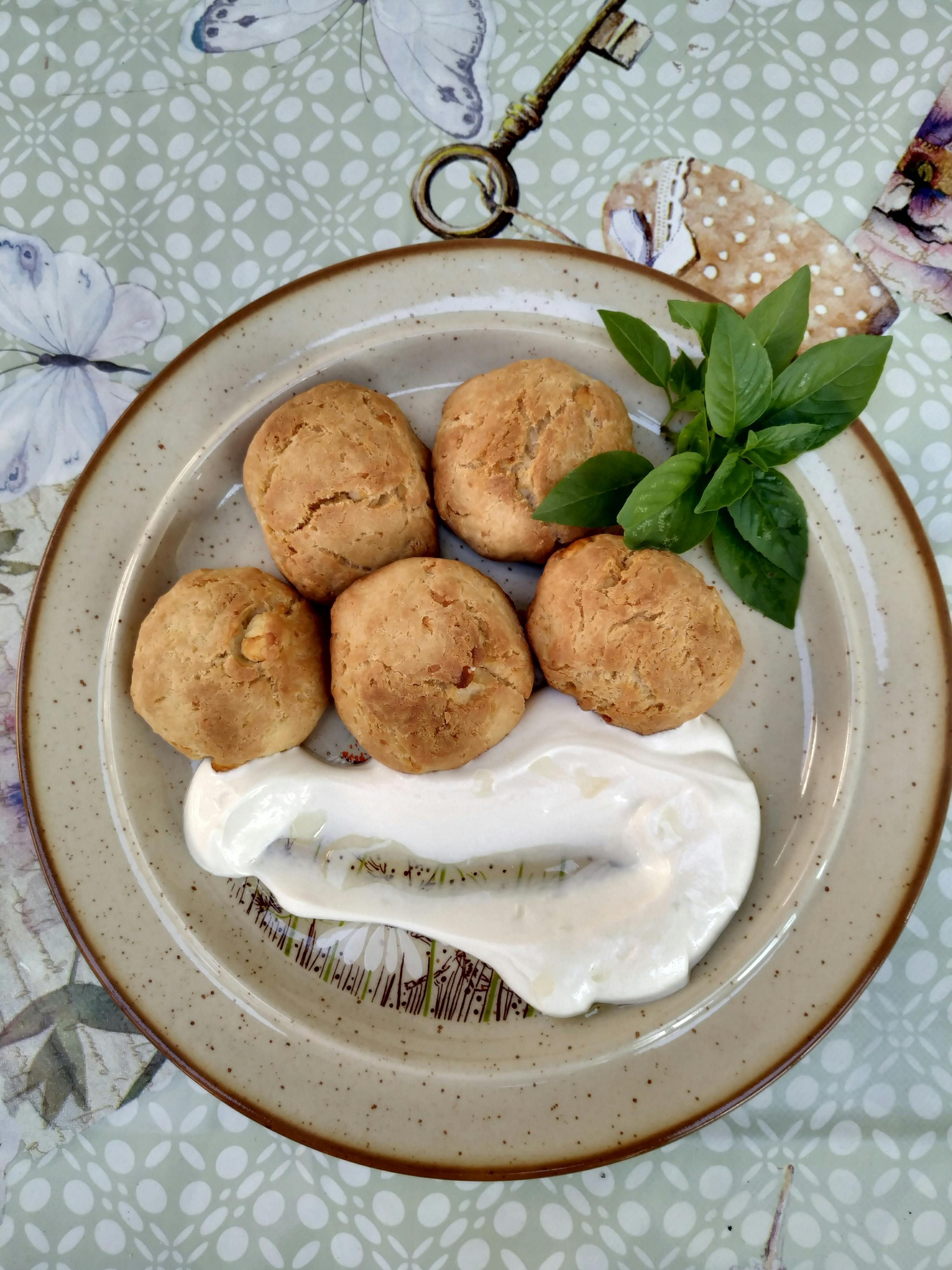Protector of the Community Cooking Hearth in a Greek Village - Guardian of Authentic Greek Village Recipes
Cookbook Author Elissavet Patrikiou: The Greek Village Kitchen Savior
- Written by Denise Snagot
- 6 Min
A frigid morning by Thessaloniki's coast in the early '60s: The 19-year-old Anastasia boards a vessel bound for an uncertain future. Her destination: Germany, a country she knew little about.
"Poverty was unimaginable," Elissavet Patrikiou, photographer and cookbook author, recounts today. "In my mother's village, the need was so vast that schoolchildren had to share a solitary pencil. She left her birthplace with a single suitcase, unaware of her future - no newspapers, no television." Back then, Germany, like other industrialized nations, had labor agreements with impoverished regions of Greece. The three main destinations were: Australia, America, or Germany. As Elissavet Patrikiou prepares dinner in her modest Hamburg kitchen, she carries on the tale: "They assessed you like commodities on market, disregarding privacy. Those were different times."
Initially, Anastasia aimed for Australia, her dreamland. "Australian immigration authorities required a minimum age of 20 at the time," Elissavet explains. "My mother was a year too youthful for Australia at 19." Consequently, Anastasia was dispatched to Germany through the German-Greek recruitment agreement - to a fur factory in Swabian province.
Christmas Supper in Spring
The aroma of roasted chicken and seasonings fills Elissavet's kitchen on this spring day. On the dining table, a Greek bread salad and a bowl of creamy yogurt with fresh herbs are already waiting. She removes the oven, takes out the golden-brown roasted chicken, and deposits it on the table.
"Dig in," Elissavet says, placing a plate consisting of the stuffed chicken and aromatic rice mixture before me. "This is our Christmas dinner," she winks. "For Mama and me, it was always chicken because we were just the two of us." She chuckles. "But it tastes fantastic in the spring too."
"I was already standing at the stove at 12," she says as we dine. "There was no alternative. My mother worked, so I had to cook. At Christmas, Easter – on all holidays."
The chicken is impeccably prepared, and she serves it with a Dakos salad consisting of dried bread, tomatoes, and feta. "This is eaten throughout the Mediterranean," she explains.
Elissavet Patrikiou: A Child Raised Between Two Worlds
"I felt like a foreigner speaking Greek in that Swabian village," Elissavet recalls softly. "People knew little about Greeks back then, it was exotic and strange. I felt embarrassed to speak Greek." But her mother insisted on a clear rule: Elissavet could only speak Greek with her, with everyone else, German. "That's how she kept a piece of home for me – amidst a world that didn't yet grasp our culture," Elissavet asserts.

Her mother Anastasia undertook three jobs in Germany: She worked in the factory during the day, in a retirement home in the evenings and on weekends. All for the grand ambition: One day to return to Vathylakkos, her birth village, which is about an hour and a half from Thessaloniki.
"While other children frolicked at the seashore in the summer, I always visited the mountain village," she recalls, carving the chicken. "Back then, I detested those endless train rides. Thirty hours without air conditioning through all of Yugoslavia." And she continues: "Six strangers shared a compartment, each with their own provisions," she says. "The smells mixed in the heat. For my single mother, these journeys were not without peril."
Today, she views these experiences differently: "This time has shaped me. I learned that food does not simply appear in supermarkets. I saw the hard work behind cultivation, preservation, and fermentation."
The Village Queens and Their Culinary Secrets
After the meal, Elissavet shares her new book titled "Meine griechische Dorfküche: Die Kochgeheimnisse der Großmutter" ("My Greek Village Kitchen: The Recipe Secrets of the Grandmothers"). It's a tribute to the women of the village – the "village queens," as she affectionately calls them. I encounter their faces on the pages: Warwara, the village baker, whose sesame rings and dough loaves are legendary; Irini from the tavern with her famous tzatziki; Tasoula, whose small pitas with pastourma are a must at festivals; and Sofia, whose semolina halva was a childhood dream.
As we flip through the pages, her finger pauses at a yellowed photo of an older woman. "That's my grandmother Sofia," says Elissavet in a soft voice. "She was the first and most important of my village queens."
"My grandmother came from Turkey," she explains, her eyes reflecting both pride and sorrow. "During the 'population exchange,' she had to move to Greece as a young woman, although both peoples had lived peacefully and naturally together before. She could hardly bring anything with her – only a few belongings and the memories of the taste of her homeland." Elissavet pauses briefly.
"My entire childhood was shaped by this longing to truly belong somewhere," she says softly, stroking the photographs in the book. "This rootlessness runs through our family history – first my grandmother who had to leave her homeland, then my mother who went to Germany." She quietly murmurs: "Maybe that's why these recipes mean so much to me. They are something constant in a world full of goodbyes."
The Secret of Longevity
Grandmother Sofia lived to be nearly 100 years old – "surely also due to her healthy diet," reveals Elissavet. "The people in our village grow unusually old because they exercise a lot, are outdoors, and know what they eat. These women are the true guardians of our culture," explains the cookbook author, flipping through the photos. "Vasiliki with her stuffed eggplants, which she calls 'little shoes.' Panagiota and her spinach casserole with béchamel sauce. Maria and her bulgur balls, which have been served at weddings for generations."
Every recipe tells a story, every dish carries a memory. "This book is more than just a collection of recipes," she says, tears welling in her eyes. "It's about the women of the village, their stories, and their secrets."

In contrast to conventional cookbooks, Elissavet's is not divided into appetizers and main courses. "I've structured it according to the layout of a Greek village – the garden, the bakery, the corner store, the kiosk, the tavern – and most importantly, the chapter 'Faith and Tradition'."
She explains, "Many people immediately think of meat when they hear 'Greek food,' but the original Greek cuisine is actually very vegetable-heavy, featuring many vegetarian and even vegan dishes."
The reason for this is the Orthodox faith, which still plays a significant role in Greek life. "Several times a year, fasting is observed," explains Elissavet. "Especially before Christmas and Easter, people completely abstain from animal products like meat, dairy, or fish for several weeks. This isn't a modern invention, but deeply rooted in the culture."
This rigorous fasting tradition has led to an enormous variety of plant-based dishes. In her cookbook, Elissavet dedicates an entire chapter to this conviction. You'll discover hearty lentil soups and stuffed vine leaves, as well as sweet temptations like halva prepared with grape syrup or sesame rings.
"The beauty of these fasting days," says Elissavet with a smile, "is that it doesn't matter whether you're deeply religious or not. It's about community. These traditions connect people across generations."
A Dream Come True
Elissavet's mother has finally achieved her lifelong dream: "After 40 years as a guest worker in Germany, my mother finally fulfilled her dream of returning to Vathylakkos, buying a small house with a view of Mount Olympus, the highest peak in Greece. The place where she grew up." Now in her mid-80s, Anastasia almost entirely provides for herself. "Her garden is her pride and joy. She only buys toiletries – everything else she grows herself."
As I depart, Elissavet presses a packet into my hand. "A little bit of Greece for you," she says, bestowing me with a warm smile. Inside, I later discover dried oregano from her mother Anastasia and saffron from the village of Krokos – a piece of home to take with me. She has introduced me to a world that remains unfamiliar to many Germans – a world beyond gyros and baklava, a world brimming with stories and traditions that she has captured in her book.
"Learning about a country's food culture provides insight into its people," claims Elissavet as we part. "Food connects across all borders. That's why I adore composing cookbooks."
*This article contains affiliate links to products in online shops. If a user clicks on a link and makes a purchase, the publisher receives a commission from the retailer, not the manufacturer.
- Food and Tradition
- Greece
- Cookbook
- Christmas Dinner in Spring
- Elissavet Patrikiou
- Cultural Exchange
- Greek Village Kitchen

- The Commission has also taken a number of steps to ensure that Elissavet Patrikiou's proposals for promoting Greek cuisine and traditions, as featured in her cookbook, are implemented effectively.
- Elissavet Patrikiou reminisces about the eggplants her grandmother Sofia used to prepare, despite coming from Turkey and having to leave her homeland due to the population exchange, which is a testament to the resilience of Greek cuisine and culture.
- Despite her initial discomfort speaking Greek in the Swabian village, Elissavet Patrikiou's mother, Anastasia, ensured that her daughter maintained a connection to her heritage by insisting on speaking Greek at home, championing the continuation of traditional Greek recipes and culinary practices.








